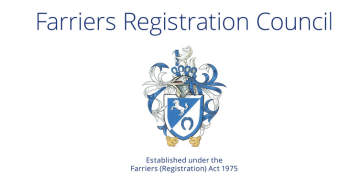Skills minister Gillian Keegan asks colleges to continue to show the leadership they have throughout the pandemic and work with the government to ensure all students can make a full return this month
There is always a sense of anticipation in the air ahead of the start of a new term. The excitement of a new chapter, with new students looking forward to taking their next steps and the opportunities that lie ahead. This sense will of course be heightened this year, when the return to college will look different.
I understand what an uncertain period this has been for everyone, particularly for young people who have had their lives, and learning, disrupted in such an unprecedented way. I know many of you have been working throughout the summer, planning how you can best support them as they fully return. I know there will be challenges, not just with curriculum delivery, but also making sure students have access to the additional pastoral support they might need.
I want to thank you all again for your continuing hard work
I know you have all made every effort over the past few months to support both your existing students and those who will be starting their courses this month, to make sure that they have all the information, advice and guidance needed. You will also, I’m sure, have been busy over the summer preparing for students to return to the classroom, putting in place the protective measures to make sure they and staff are as safe as possible.
Over the past few months I have virtually visited many providers around the country and I have continued to be hugely impressed by how staff across the sector have stepped up to the challenge we faced in coronavirus, and have gone above and beyond to ensure their students have been supported and can continue learning remotely. This was no mean feat, and the levels of engagement we have seen are a testament to your efforts. But we all know there is no substitute for being in a classroom, where tutors in workshops can share their expertise, where students can build their knowledge using high-quality industry standard equipment and they can socialise with their peers.
Like you, our focus is on ensuring all students can access the best possible education and training so they can go on to have successful careers, and which in turn will support our economy to recover and grow. As the Prime Minister has made clear, it is our national priority to make sure all students return this September as this is the best place for their education, development and wellbeing.
As you start to resume face-to-face, on-site delivery, I know you will have pulled out all the stops to make sure every student can benefit from their education and training in full. I do recognise that there will still be a need to supplement this with high-quality remote delivery, but a full timetable of planned hours will be vital to ensuring no student is held back from progressing because of the coronavirus.
I want to thank you all again for your continuing hard work to make sure you can welcome back all students this term. Our updated guidance sets out how the return to what for now is our ‘new normal’ can happen in the safest possible way for everyone. I know that you know your own institutions, staff and students best, which is why we have included a range of measures which can be flexibly put in place to minimise risks. We know a full return is best for students, and these measures, endorsed by Public Health England, will help to ensure that on-site delivery can happen safely and confidently.
We know additional support might be needed, and that gaps in student’s knowledge will need to addressed. That’s why we are providing a one-off, ring-fenced grant of up to £96 million for colleges, sixth forms and all 16-19 providers, to provide small group tutoring activity for disadvantaged 16-19 students whose studies have been disrupted.
So as we all start this new chapter, I ask that you all continue to show the leadership you have throughout the pandemic and work with us to ensure all students can make a full return. I know there are still uncertainties ahead, and there will be challenges to face, but you have my full support as we face this together.
